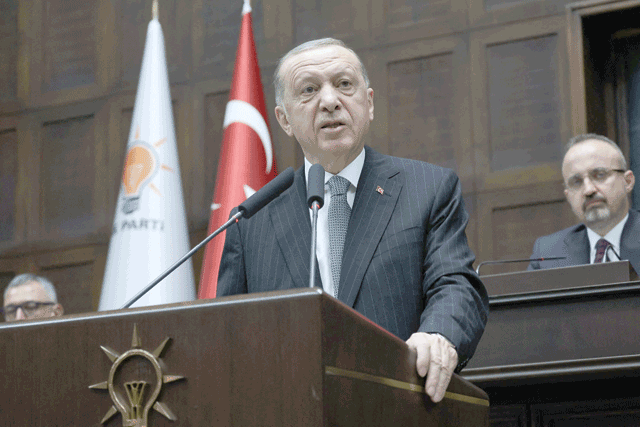You are here
Turkish inflation hits two-decade high of 78.6%
By AFP - Jul 04,2022 - Last updated at Jul 04,2022
ISTANBUL — Inflation in Turkey in June soared to an annual rate of 78.6 per cent — the highest in 24 years, according to official data released on Monday — as President Recep Tayyip Erdogan's ‘unconventional’ economic policies continued to take their toll.
But independent estimates published by Turkish economists showed prices rising at more than double that figure.
The inflation rate reported by Turkey's state statistics agency was the highest since the emerging market suffered a currency meltdown during a global financial crisis in 1998.
Inflation had stood at 73.5 per cent in May and at 15 per cent at the start of last year.
Economy Minister Nureddin Nebati on Friday vowed that consumer prices will start dropping in December.
"I promise to you and to the president, we will see a drop in inflation starting in December," he was quoted as saying by Turkish media.
According to the official data, the surge in inflation in June was driven by a jump of 123.4 per cent in the cost of transportation and a 94-per cent increase in non-alcoholic drinks.
Turkey's latest problems began when Erdogan forced the central bank to go through with a series of interest rate cuts last year that he said were part of his "new economic model".
The policy rate went down despite rising consumer prices.
But the Turkish leader rejects conventional economics and affirms that high interest rates cause prices to rise.
Economists believe his approach has exacerbated the pain felt world-wide from the jump in food and energy prices caused by Russia's invasion of Ukraine.
Questions over data
However, more and more economists are starting to question Turkey's official data.
A monthly report released on Monday by Turkey's ENAG group of independent economists showed consumer prices rising by 175 per cent in June.
ENAG said prices had risen by 71.4 per cent since the start of the year alone.
The Istanbul chamber of commerce said inflation in Turkey's largest city has reached an annual rate of 94 per cent.
"No one actually believes official Turkish data anymore," said BlueBay Asset Management economist Timothy Ash.
"There is no expectation of anything like a credible policy response."
Turkey's official data are turning into a hot political issue ahead of next year's general election — widely viewed as the toughest of Erdogan's two-decade rule.
Opposition leader Kemal Kilicdaroglu accused the state statistics agency of "lying".
A survey published by the Metropol polling agency on Friday showed 69 per cent of respondents believed the unofficial ENAG figure and just 24 per cent the one reported by the government.
'Cost-of-living problem'
Erodgan has doubled down on his economic approach and hinted that he may want the benchmark interest rate to move even lower in the months to come.
He has also tried to reverse the accompanying drop in his public approval by announcing a rapid series of wage hikes to large parts of the population.
He has bumped up the minimum wage earned by roughly 40 per cent of the working Turks from 2,826 liras in late December to 5,500 liras ($325) this month.
The wage is used as the benchmark for a wide range of social benefits across the economy.
Economists warn that substantially raising the pay of so many people is an inflationary measure that should be accompanied by interest hikes or other means of limiting spending.
But Erdogan rejects the very idea that Turkey is suffering from inflation.
"We do not have an inflation problem. We have a cost-of-living problem," Erdogan said last month.
Related Articles
ISTANBUL — Turkey's annual inflation rate fell to 71.6 per cent in June, official data showed on Wednesday.Consumer prices began slowing aft
ISTANBUL — Turkey's inflation rate slowed for a fourth straight month in February, data showed Friday, but remained in double-digits ahead o
ISTANBUL — Turkey's central bank on Thursday surprised the market with a larger-than-expected interest hike as it ramped up its fight agains












